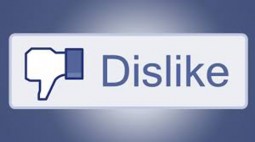by Daisy Creager|staff writer
For many students, it could be considered an addiction. An obsession. They look at it when they wake up in the morning. They pull it up in class and at lunch. Some students need to look at it in order to sleep at night. From providing a source of local news to enabling teenagers to waste their life one six second video at a time, social networking is cited by many as being almost too much a part of the American teen lifestyle. But are some of the popular social networks dying?
Following the crash and burn of the site Friendster in the early 2000s, analysts have been studying various social networks to predict which ones will follow a same path and why. One major site that may be in decline is Facebook.
“This year I have seen teenagers using and talking about Facebook less and things like Instagram, Vine and Twitter more,” English teacher Gabriel Oviedo said.

In a recent study conducted by Ebizmaba, Facebook and Twitter ranked first and second, with Myspace at number 11 as far as social networking sites with the most traffic. However, on October 30, Facebook CFO David Ebersman announced that daily usage of the site among teens has dropped to 25 percent, setting off a shaky market reaction.
“Facebook is probably dying like Myspace,” senior Jake Franklin said, “I think that in two years will be phased out. Well, in our generation at least, the older generations still use it.”
So what is causing this waning interest? As has happened with Friendster and then Myspace, Facebook may just be giving way to newer social networks.
“I think the cycle of change has kind of run it’s course,” English teacher Gwendolyn Guerrero said, “That and the fact that [Facebook] has become so open to so many people. Everyone knows what it is and how to use it, things seem better when they are a secret and limited.”
Speculations suggest that new ideas for functions of social networks arise, the now familiar layout and functions of Facebook may be less appealing to some teens.
“I think with Twitter it’s because you’re limited to words and on the amount of words, you can only put little snippets of information out there so it’s a faster way to get information,” Guerrero said.
According to Guerrero, the ease of access and almost instant communication of sites like Instagram and Vine are also appealing to teens.
“I think because it’s become so much easier for them to take pictures of themselves and other people and then post them so quickly,” Guerrero said, “So easy access, fast access, and the fact that they can respond to each other so quickly played a large part in that.”
However, while teenagers interest in Facebook may be waning, it still maintains it’s position as a social networking giant. Although it may have taken them a little longer to learn how to use it, many adults use Facebook daily to keep up with friends.
“I like facebook because my age group largely uses it,” Guerrero said, “It allows me to see pictures of people who I don’t get to see every day.”

